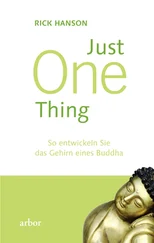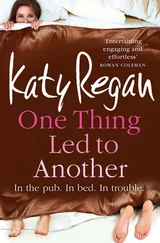Dr. Greenstein seems like a nice enough lady, more like a grandmother than a doctor. She wears long skirts and loose blouses and thick, flat sandals. And her toenails are painted a shocking baby blue. Maggie can’t stop looking at her feet. They seem to belong to another person, a younger person.
After Maggie has been seeing Dr. Greenstein for several weeks, two times a week, Lucia and the doctor have a session. Maggie stays with Max. They have a date to harvest the honey.
In Dr. Greenstein’s corner office, part of a one-story brick medical building in Westwood, Lucia watches the older woman close the drapes against the afternoon glare and settle her heavy body into her leather desk chair. Lucia waits. Is this the woman who is going to unlock the mystery of her child?
“Maggie may be punishing you for leaving her father” is what the doctor says. No preamble, simply the diagnosis put forth as a suggestion.
“That’s not in my daughter’s nature.”
“Do you have an alternative theory?” the doctor asks, her voice neutral, not a hint of impatience in it.
Lucia shakes her head. “This is all so out of character for her.”
“Well then,” the doctor says carefully, “could she be repeating behavior she’s witnessed? Silence as coping mechanism?”
“I don’t know” is said too quickly, but Lucia knows immediately without having to search for it, the moment when she decided just that.
She is seven months pregnant with Maggie and so proud of it. She and Richard are standing in the kitchen of their Riverside apartment. It is late afternoon and the setting sun lies in a wide stripe across the tile floor, turning it a glowing red. Richard is going on and on about the stupidity of “all those home-birthers” and how they don’t realize that they put the baby at risk. He did some research, he tells her, since she raised the topic at dinner the night before and he holds several pieces of paper in his hand with columns of statistics spread across the pages and he is waving them around as he speaks. Facts, figures, numbers, and percentages — all that Richard deems holy.
Lucia remembers that she attempted to get a word in about how she felt. That she wanted more say in what happens during the birth. That if they were in a hospital, then their doctor, Dr. Roebuck, would be setting the rules and she is afraid that her wishes wouldn’t be honored.
“Richard,” she remembers saying as calmly as she could, “I’m here, too. Try to hear what I’m saying. I want to be present at our child’s birth. I want you there, too. It’s something we can do together—”
“Of course you’ll be present. Who else is giving birth but you?”
“No … what I mean is — I want to participate in the choices and the decisions. I want it to be collaborative. You know Dr. Roebuck, he’s so … definite, but if we had a midwife—”
And Richard interrupted her again. “No child of mine is going to be born at home with some medieval person called a ‘midwife.’ End of discussion. End of story.” And he walked out of the room, leaving Lucia standing there in the empty kitchen. He never listens. Ever. What’s the point?
Such a small moment, Lucia knows, but she remembers thinking— That’s it, it’s useless . It was the moment that crystallized all that went before, the years of not being heard, the attempts to say what she felt. And then, during all the years that followed when nothing changed, Lucia began to plan her early morning flight that ended up at Bernadette’s.
“All right,” Dr. Greenstein says now with a certain briskness as she recrosses her legs and pushes her body back in the chair, “then we must ask ourselves, what is your daughter getting from this behavior?”
Lucia shakes her head. “Everything’s harder because she won’t speak.”
“For you or for her?”
“Both of us.”
“What do you think she would say if she were still speaking?”
Lucia doesn’t answer right away. This question she considers seriously. She looks around the crowded office, giving herself time to ponder it. If Lucia came here twice a week instead of Maggie, she knows she’d be hard-pressed not to tidy up. She’s itching to put the toys away that are scattered throughout the play area, straighten the medical books that are pushed haphazardly into the bookshelves, or at least straighten up the piles of paper on Dr. Greenstein’s desk so they don’t look like they’re ready to topple over. What does this kind of messiness say about Dr. Greenstein’s skill as a therapist? Lucia has no idea.
The doctor waits as silence accumulates in the room. Finally, Lucia speaks. “She’d probably tell me she wants to go home, to her father.”
Dr. Greenstein nods. “Most children, no matter how unhappy the home situation, want their family intact.”
“I understand that.” Then, “It’s hard to explain to a five-year-old why I had to leave her father.”
The doctor nods. She agrees.
“But I did.” Lucia decides to say what she’s told no one else. “I was certain I couldn’t be the mother Maggie needs if I stayed.”
“Ah …” Dr. Greenstein says as if she completely understands, and Lucia relaxes for the first time since she sat down in the very uncomfortable upholstered chair opposite the desk.
It is only then that Lucia can ask, “What can we do?”
“Don’t speak for her,” Dr. Greenstein says carefully.
“Oh, I don’t,” Lucia answers in a split second, telling Dr. Greenstein that she, in fact, does. Most mothers do without even realizing it.
“In selective mutism it often happens that the mother, unconsciously, becomes the child’s voice in the world. She knows her child so well. She wants to facilitate her way, but speaking for your child makes it less and less necessary for her to speak for herself.”
“All right.”
“And don’t so easily understand all her gestures and signs. Do you feel sometimes that you’re having a conversation with her, only you’re voicing both parts?”
“Yes.”
“Don’t. You’re making it too easy for her.”
After a moment, “I see.”
“And never underestimate the courage it will take your child to begin speaking again. Not speaking reinforces itself with almost no effort. To break free and speak … well, that is an act of bravery.”
“But she’ll do it, won’t she?”
“We certainly hope so.”
That answer isn’t at all satisfactory to Lucia.
MAGGIE WATCHES MAX TAKE A LARGE KNIFE and cut around the edges of the honeycomb frame. “We’re using the crush-and-strain method,” he tells her. They’re standing in the backyard, both wearing their pith helmets with veil. Max is making sure as he cuts that the honeycomb falls into a large white bucket, the kind painters use.
He’s already explained what the other white bucket, which they’ve washed and is now waiting, will be used for. It looks exactly like the first one, only it has a spigot at the bottom. And Max has placed a large, snug-fitting strainer across the top.
“There’s something called an extractor,” Max explains as he takes up the second frame and begins cutting through the waxy comb, “which is a big stainless-steel bucket with a crank on top. You put the whole frame in and the extractor spins it around and flings the honey out, but I don’t have one of those yet. It’s probably a whole lot easier, but I think this will work fine.” Maggie thinks whatever Max does will work out fine. Max has taken up residence in a small piece of her empty heart, aching for Richard’s presence.
After Max has cut the comb from the third frame, he shows Maggie a tool that looks like a paint scraper and tells her it’s her turn. “Here’s the ‘crush’ part. We need to break up the comb we’ve got in the bucket so that the honey can get out. Do you think you can do it?” Maggie nods, eager to try. “Mash away. Like this.” And Max shows her how to jab and press on the comb so that the lovely honey squirts out.
Читать дальше












